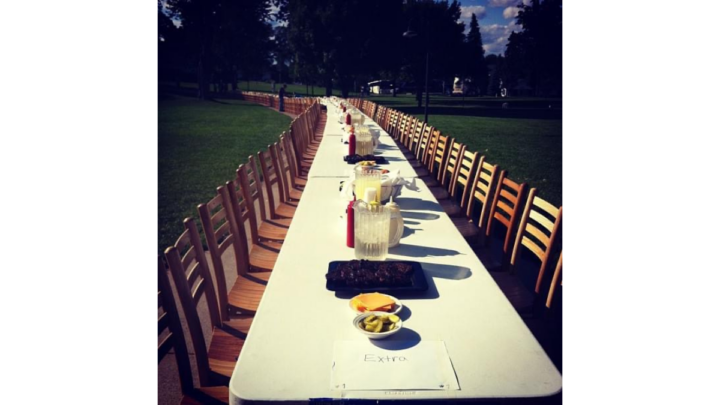When he (Jehu) left there, he met Jehonadab son of Rechab coming to meet him; he greeted him, and said to him, ‘Is your heart as true to mine as mine is to yours?’ Jehonadab answered, ‘It is.’ Jehu said, ‘If it is, give me your hand.’ So he gave him his hand.
Some historians, who carry less than a deep appreciation for Christianity, have noted that one of the greatest reasons England did not experience the same bloody revolution as France did in 1789, stems from the societal transformation which sprouted from the seeds of the teaching and practices of the first Methodists. These seeds first took root in John Wesley, as a child, and sprouted in places like a Bible study on Aldersgate Street in London in 1738 . These seeds were the gospel of Jesus Christ. Even amidst the challenges of their day, ones described in a Charles Wesley hymn as, “What troubles have we seen, what mighty conflicts past, fightings without, and fears within,…” the Methodists were a dynamic band of ordinary people, committed to Jesus’ way of love. The way insisted upon by John Wesley, and embraced by early Methodists, is best described as : “Do Good, Do No Harm, and Stay In Love With God.” “By this they will know you are my disciples,” Jesus said, “by the love you have one for another.” (John 13:35)
As Bishop Kenneth Carter notes, “In “The Character of a Methodist,” John Wesley commented that “as to all opinions that do not strike at the root of Christianity, we think and let think.” And in “A Plain Account of Christian Perfection,” he insists that “orthodoxy, or right opinions, is at best a slender part of religion, if it can be allowed to be any part at all.”
(Wesley’s) sermon on the “Catholic Spirit” is focused around a question and an answer taken from 2 Kings 10:15: “Is your heart right with my heart? If it is, then give me your hand.” His interpretation of this verse of scripture is worthy of our reflection:
If it is, give me your hand.” I do not mean, “Be of my opinion.” You need not. I do not expect or desire it. Neither do I mean, “I will be of your opinion.” I cannot; it does not depend on my choice. I can no more think than I can see or hear as I will. Keep you your opinion; I mine, and that as steady as ever. You need not endeavour to come over to me or bring me over to you. I do not desire to dispute those points or to hear or speak one word concerning them. Let all opinions alone on one side and the other: only, “give me your hand.” – Embracing The Wideness
In her memorable definition of sin, Barbara Brown Taylor points out that sin becomes visible to us, “…in human existence (as) an experience of reaching for forbidden fruit – of pushing away loving arms – of breaking something on purpose just to prove that you can.” I have had my fill, of late, of experiencing the pain of extending my hands in friendship only to have them ignored or pushed away. I’ve seen more than I care to see of those who would break things just to prove they can. And I have wondered how many times my own actions have produced the same experiences for others.
John Pavlovitz captures my vision for our shared life in the continuing United Methodist family.
“I want the table to be big enough. I still seek a Church that is not the least but the most diverse place on the planet. I still dream that the life of Christ can be fully incarnated in the people who bear his name. I want this faith to produce something more redemptive than choosing sides and building silos and pointing fingers. I want it to generate hope and yield goodness and produce mercy in ways that defy description and explanation and denying. I am holding out hope for true communion. But it’s really not up to me alone. It’s in the hands of (those) who claim faith in Jesus, from wherever you find yourself standing and however you align yourself and whatever you see your personal calling as a Christian to be.”
Give me your hand?
How Sweet The Sound,
Jon (the Methodist)

